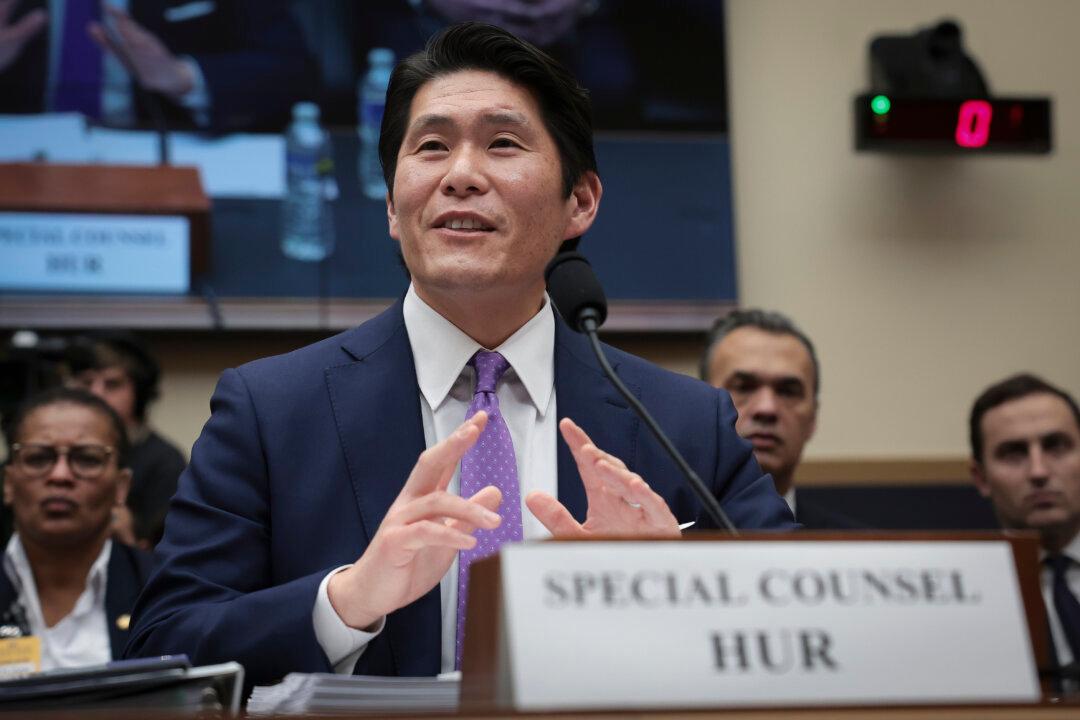The Department of Justice (DOJ) stands its ground on its refusal to surrender the audio recording of Special Counsel Robert Hur’s interview with President Joe Biden to the House Oversight Committee.
Reps. Jim Jordan (R-Ohio) and James Comer (R-Ky.), chairmen of the House Judiciary and Oversight Accountability committees, warned Attorney General Merrick Garland that he would hold him in contempt of Congress unless he handed over the recording of Mr. Hur’s interview stemming from a probe into President Biden’s alleged mishandling of classified information.





